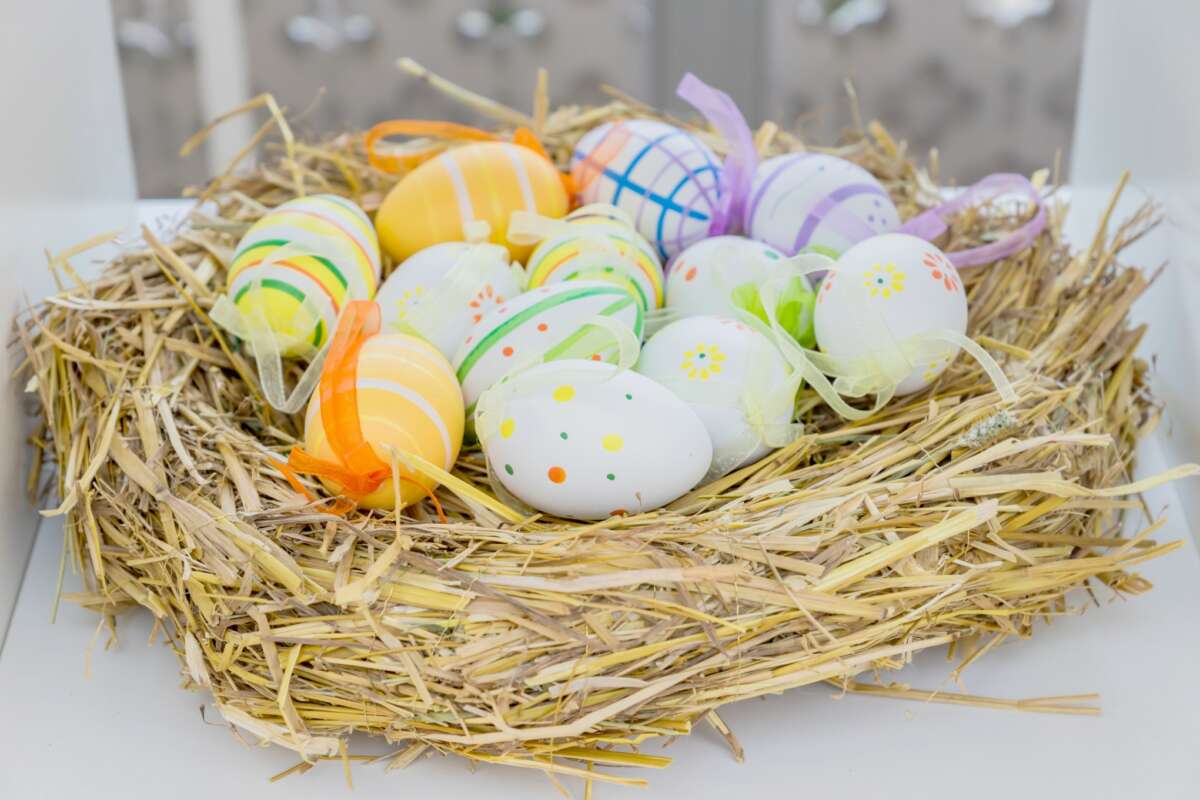What is orange wine? How do producers make the wine that color? What does orange wine pair well with? Is orange wine the new rosé? Dear reader, we’ve got answers in our expert guide to orange wine. In our ongoing Luxury Lessons series, our Food Editor Nicole Douillet and her friend Theo Lieberman, Advanced Sommelier, are sharing what you need to know about orange wine. The headline? This is a perfect light wine for autumn and winter.
luxury lessons: what you need to know about orange wine
Here at Dandelion Chandelier, we’ve been on a journey to learn about the world of fine wine and spirits. We’ve been schooled on Japanese whisky, tequila, and mezcal. We’ve surveyed the rosé landscape. And heard the origin story of the hottest bar in New York City. We’ve even become privy to the secret recipe for the best eggnog in the world.
Now Nicole Douillet, our Food Editor, has arranged for us to take a master class on the topic of orange wine. Our expert guide to orange wine is Advanced Sommelier Theo Lieberman. Theo has worked in Manhattan establishments like Eleven Madison Park and Milk & Honey. He is currently the sommelier at Compagnie des Vins Surnaturels. And he’s got the answers on what you need to know about orange wine.
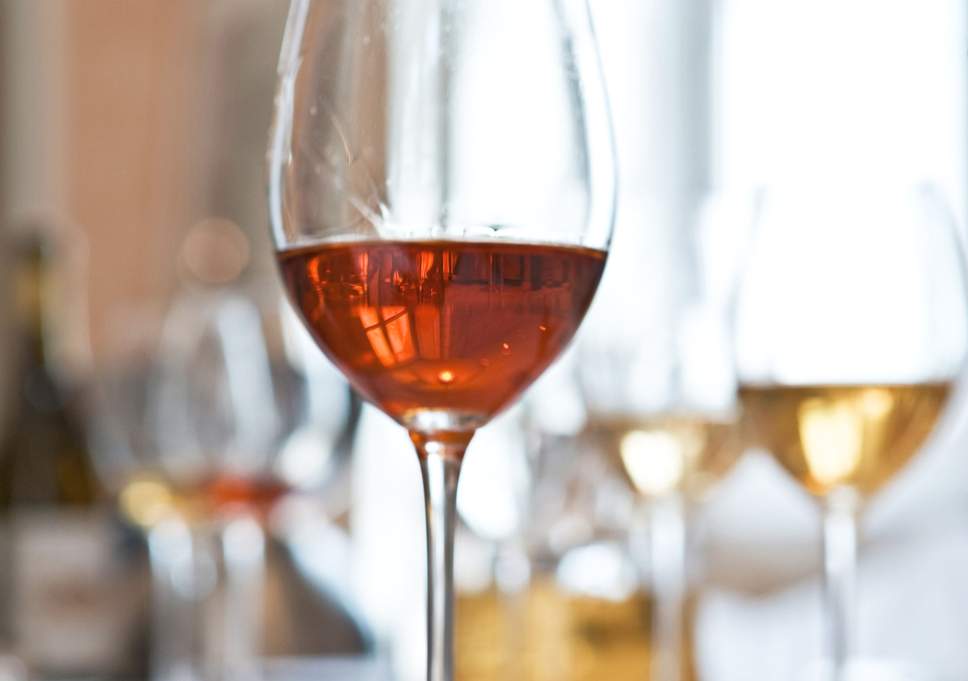
Everything you need to know about orange wine
We posed some frequently-asked questions to our expert guide on orange wine.
1. What is it that makes a wine orange?
Orange wine is essentially white wine that is made like red wine. It’s not dissimilar from champagne in many ways. Meaning, most champagne that isn’t rosé looks a lot like white wine. But champagne is actually made from predominantly red grapes.
When you take white grapes and press them without their skins, you don’t get any color. Many people don’t realize that the same thing happens with red grapes. If red grapes are pressed and not left in contact with their skins, you will end up with a white wine.
Orange wines are created when you take white grapes and keep the juice on the grape skins for a period of time. That could be anywhere from a couple of days to several months. While you might think otherwise, the “funkiness” of orange wine isn’t directly correlated to the amount of time the wine sits on its skins.
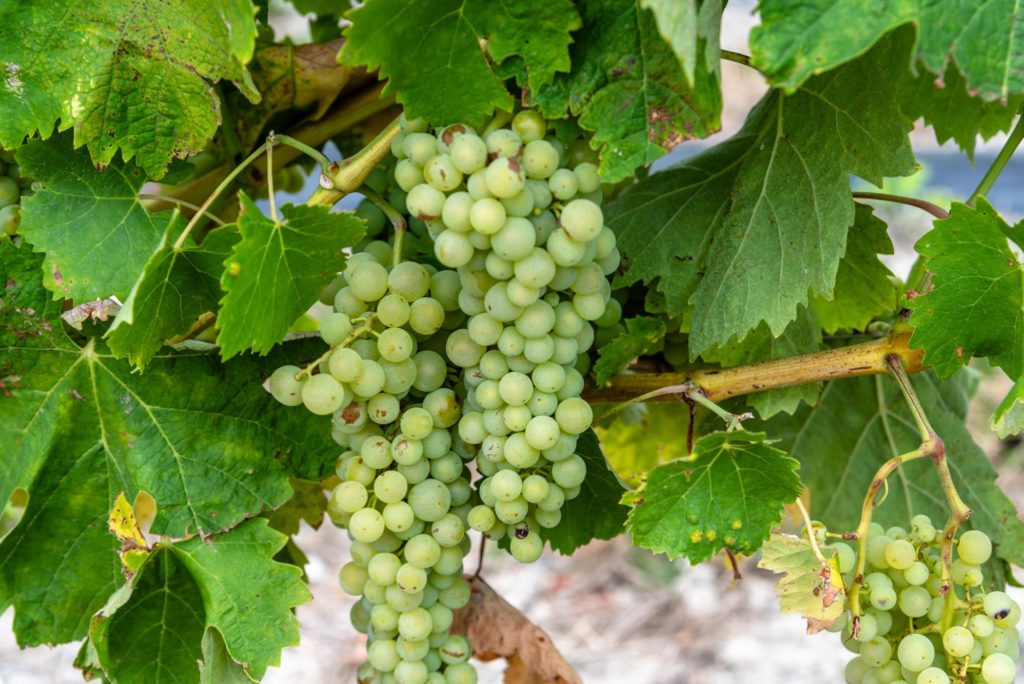
2. How did this orange wine “trend” get started?
Interestingly, the process of creating orange wine is probably the way white wine was first made thousands of years ago. So it’s hard to call it a trend. When people were fermenting grapes centuries ago, it’s unlikely that they were pressing it and removing it from the skins to ferment, like most wine is made today.
In Northern Italy, Austria, Hungary, Slovenia and Georgia, you tend to see more orange wine production. These eastern European and Germanic countries were some of the first nations to produce wine. Any expert guide on orange wine will tell you that Georgia is very famous for orange wine, which is why a lot of people credit it as being the place where wine production first began.
Over the last decade, there’s been more of a focus on seeking out balanced orange wines, which seems to have aligned with the natural wine movement, for better or for worse.
[white_box]Related Posts
luxury lessons: what you need to know about supercars
its time to get schooled in Japanese whisky
luxury lessons: what you need to know about cigars
read more >
[/white_box]
3. What’s natural wine?
Natural wine actually has no definition. But it stems from the idea that a wine-maker does not interfere with the wine making process, which often means not sulfuring a wine.
Not sulfuring a wine is crazy to me – not sulfuring wine is like eating sushi that was not shipped cold from the Tokyo fish market. Sulfur is effectively a way of preserving the wine. And when wine is being shipped around the world, having a preservation agent is the key to having a reliably good wine.
I know many people claim to get headaches from the sulfites in wine. But there are more sulfites in four raisins or a teaspoon of mustard than in a glass of wine. The amount of sulfur used in wine preservation is not a crazy amount.
4. Is there a particular winery that was earlier than others in producing orange wine?
We tend to see more producers from northern Italy and eastern Europe focused on making orange wine. That’s because as I was saying, it’s where orange wine likely originated. Because of that, the grapes that are produced in this style tend to be made from the typical grapes of this region, such as Pinot Gris, Furmint, Chardonnay, or Ribolla.
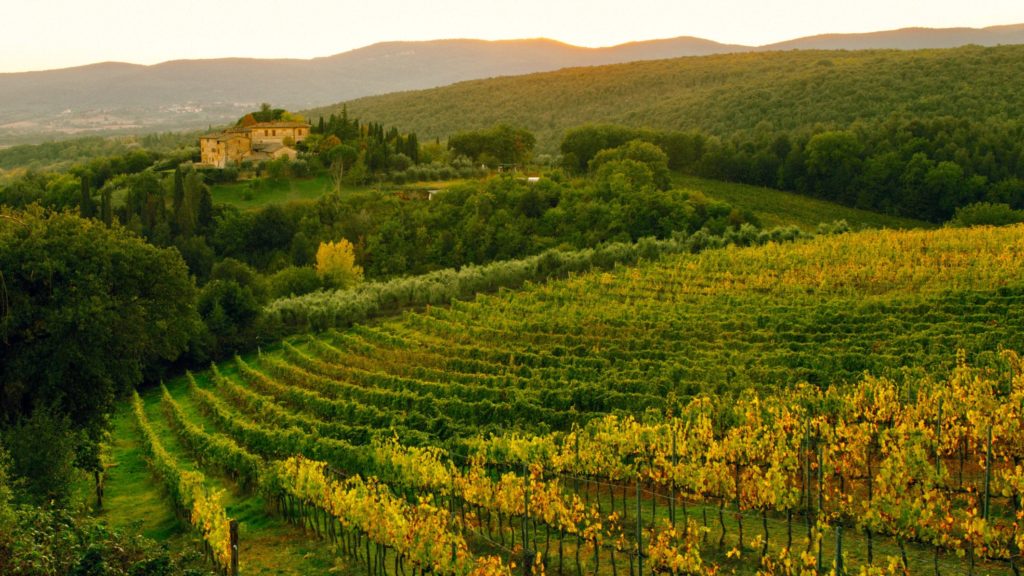
5. What orange wine producers do you recommend?
Some of the best-known producers are Gravner and Radikon, but there are a lot of producers making very good orange wine.
Radikon wines tend to throw a lot of volatile acidity (VA) ,which can make them difficult to drink. The nose from from VA can remind you of smelling a bottle of rubbing alcohol, which can be off-putting unless the wines have been aged for a substantial amount of time.
On the other hand, Gravner’s wines are very good. But they’re not cheap. They are very, very well-made, though.
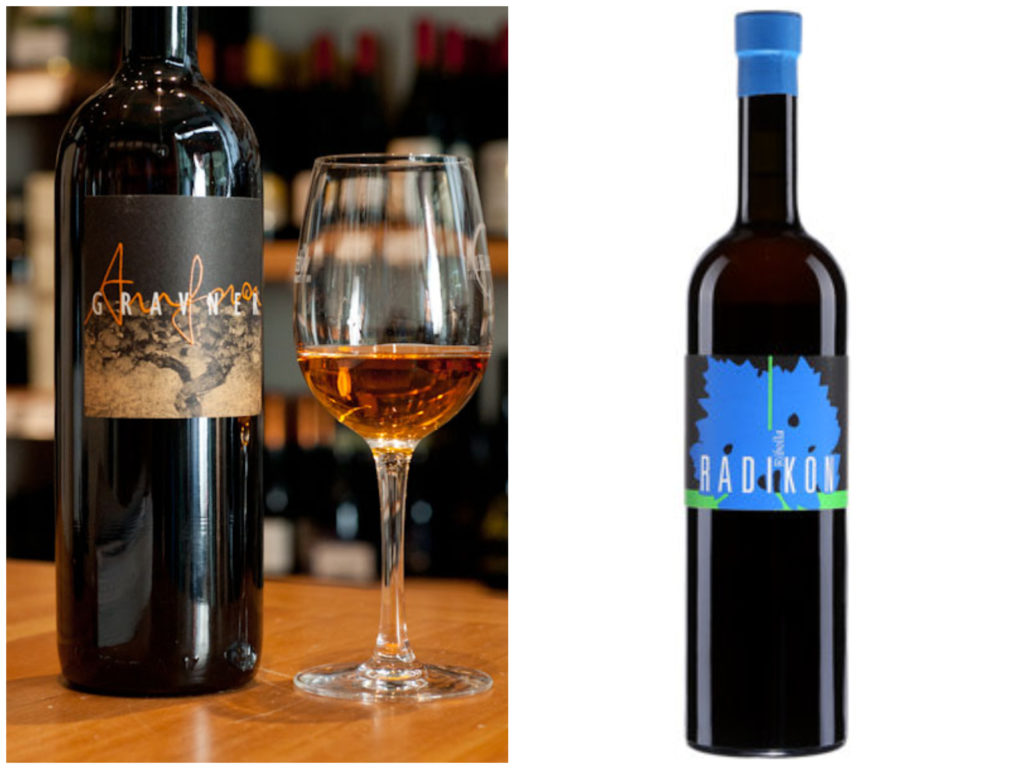
Costador is in northeastern Spain, and makes chenin blanc and sumoll blanc that are aged in anfora, and then bottled back in clay bottles. An anfora is a clay vessel, which is a typical way in which wine has been aged in Georgia. But in Georgia, it’s called qvevri.
Austria is doing a lot of orange wines, especially in southern Austria in Styria. There’s a producer called Muster who also ages in qvevri. They produce a Chardonnay-Sauvignon Blanc 50-50 blend, and its really great. In the Wachau, Peter Veyder-Malberg is producing a wine called Alter.Native, and it is also great – really delicious.
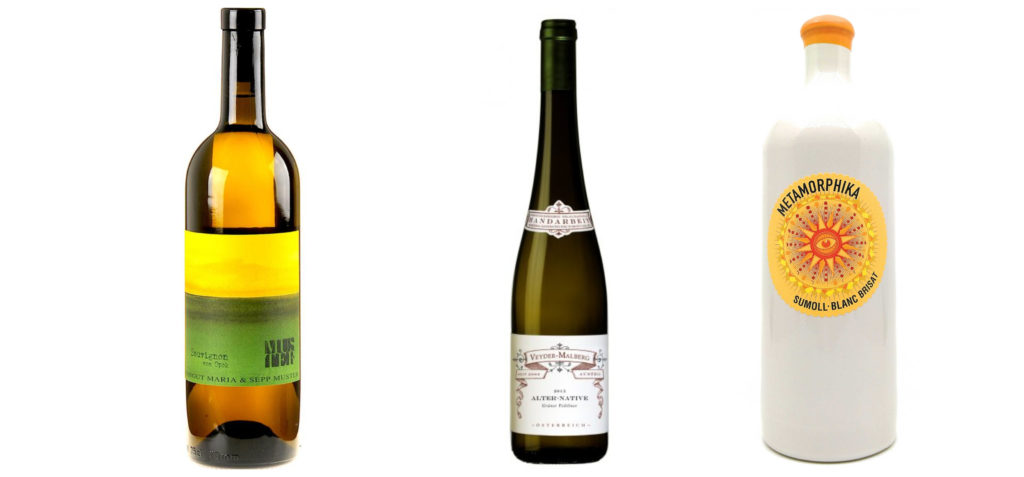
L to R: Orange Wines from Muster; Peter Veyder-Malberg Alter,Native; and Costador. Courtesy Photos.
6. How hard is orange wine to find in wine shops?
In New York, it isn’t hard to find. New York is the greatest wine market in the world, so we’re lucky here.
If you have a shop that you trust, ask the people who work there to help find an orange wine you would like. Telling them what wine you typically drink should give them enough information to make some good recommendations for orange wine. This also applies to restaurants. A good sommelier should be able to recommend a bottle or glass that fits with your preferences.
7. How hard is it to find in fine dining restaurants and bars?
Again, in New York, it isn’t hard to find restaurants and bars with orange wines on their lists. Sommelier Pasqueline Lepeltier at the French wine bar Racines in Tribeca has developed one of the best wine lists in the city. Their wine list is amazing, and she would be an expert guide to orange wine if you want to taste more than one. Racines’ wine list is almost 70 pages long, and the whole team is excellent. That’s where I would go if I wanted to taste excellent wine in any style.
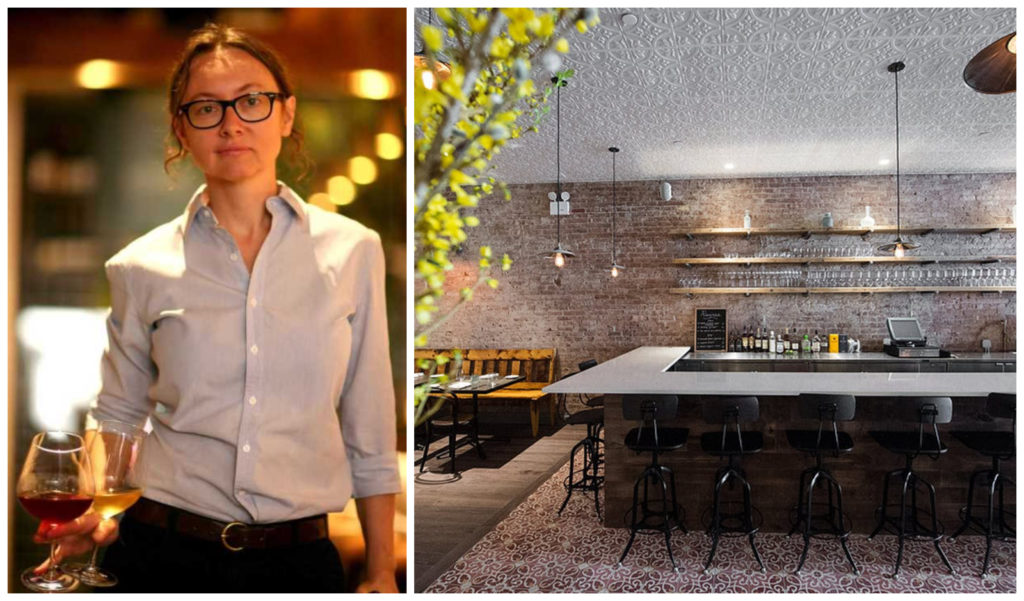
Pasqueline Lepeltier of Racines in Tribeca. Courtesy Photos.
8. What does orange wine taste like?
Orange wine can range in flavor and aroma. We have one Chardonnay on our list that sees 101 days on its skins, but is clean and bright. I think that’s probably because Chardonnay is one of the cleaner, more robust grapes. So skin-time doesn’t affect the final product as much as it would with more delicate grapes. I’d describe orange wine as more of a mouth-feel than a flavor or aroma. Fermenting the grapes on the skins makes the wine more robust on the palette.
But that said, orange wine does tend to show some mandarin notes. Although again, that’s dependent on the grape. The longer it sits on the skins, the more it can show a cheesy or citrusy quality.
Orange wines tend to lose a little bit of the typical varietal characteristics. Meaning that an old world Sauvignon Blanc may lose a bit of citrus notes, but generally speaking it should smell like a Sauvignon Blanc. Some orange wines can develop a touch of an oxidized nose, like you would see in sherry, but not all of them do. Because orange wine is made from so many different grapes and in different styles, it’s hard to say exactly what a person can expect on the nose or palette. You should try a few different ones to decide if any of them are right for you.
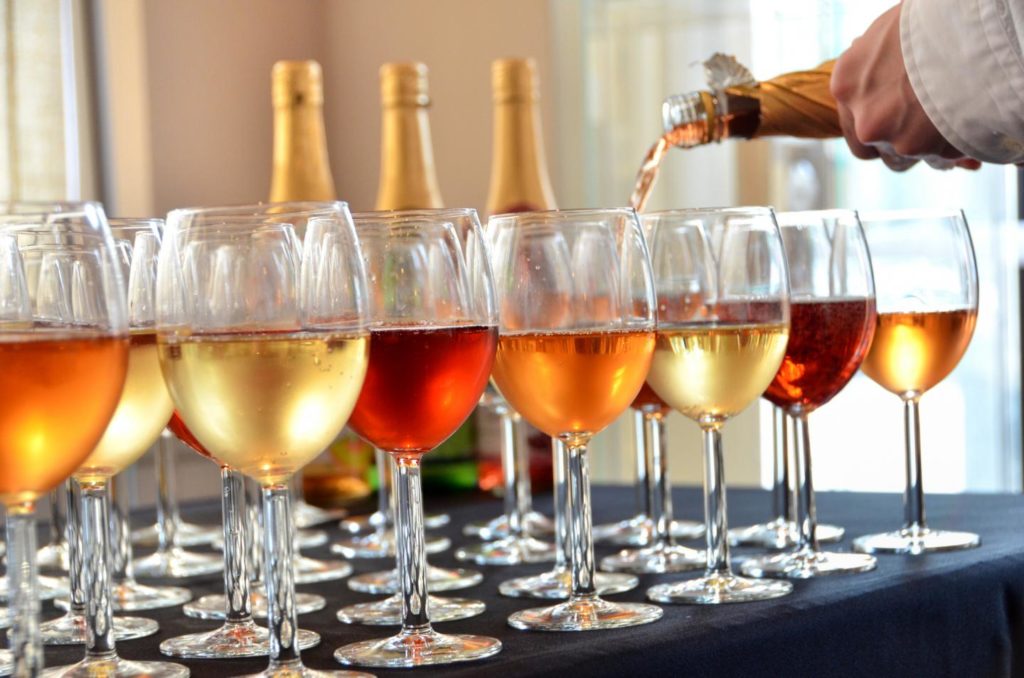
9. What kind of stemware is best for orange wine?
That’s a good question. First of all, don’t ever drink anything out of a flute. I suggest serving it out of a larger white wine glass, or a Pinot Noir glass. Personally, I love the Zalto all-purpose white wine glass. You want the glass to be large enough for people to really get the nose.
10. What does orange wine pair well with?
It’s a very food-friendly white wine that pairs well with a lot of food. Super funky orange wines wouldn’t pair well with a dainty white fish. But they would be great with any white meat like chicken, turkey, pork. It works well with anything with a lot of umami, like mushrooms or soy. And, because the acid can be so high in orange wines, anything that you would pair with a light red would pair well with orange wine.
11. Is it possible to find organic orange wine?
I think at this point, any good wine store should have organic orange wine. There is such a push, especially in Europe, toward organic and bio-dynamic production. All of the producers I’ve mentioned are either farming organic, certified organic, or are bio-dynamic.

12. What is bio-dynamic production?
Bio-dynamic means farming by the moon cycle while also using no additives in the vineyard at all. Producers create their own teas and tinctures to treat vine disease or pest problems in the vineyard.
I’m not the person who checks the bio-dynamic calendar before opening a bottle of wine – I’d be a really bad somm if I told someone “Don’t drink that today – it’s a root day!” But there are certain producers who will bottle only on flower days. Or who won’t bottle because it’s a root day. I’ve heard people who were massive disbelievers of this be swayed by tasting wine that was bottled on a root day versus a wine bottled on a flower day.
13. Should people think of orange wine as seasonal?
One important takeaway in terms of what you need to know about orange wine is that it is an ideal light winter wine. It’s heavier than other whites, so I like to drink orange wines at a slightly warmer temperature than white wine. I probably wouldn’t want to drink it on a 95-degree day, but I wouldn’t say that makes it seasonal.
14. Is seasonality starting to be less relevant, anyway?
I think we’re starting to see a move away from the idea that you can only drink rosé or white in warmer months and red in colder months. For example, we’re seeing some really impressive and beautiful rosés being produced and I would drink them any time of year.
For example, Lopez rosé is now going for $300+ per bottle on the secondary market. They release it very rarely. They released ’09 and ’08 this year and last year, but prior to that, 2000 was the last release. And the wines are stunning. If you can find a bottle in a wine store, it will likely be $40 or so. Eleven Madison Park has it on their wine list right now for $85/bottle.
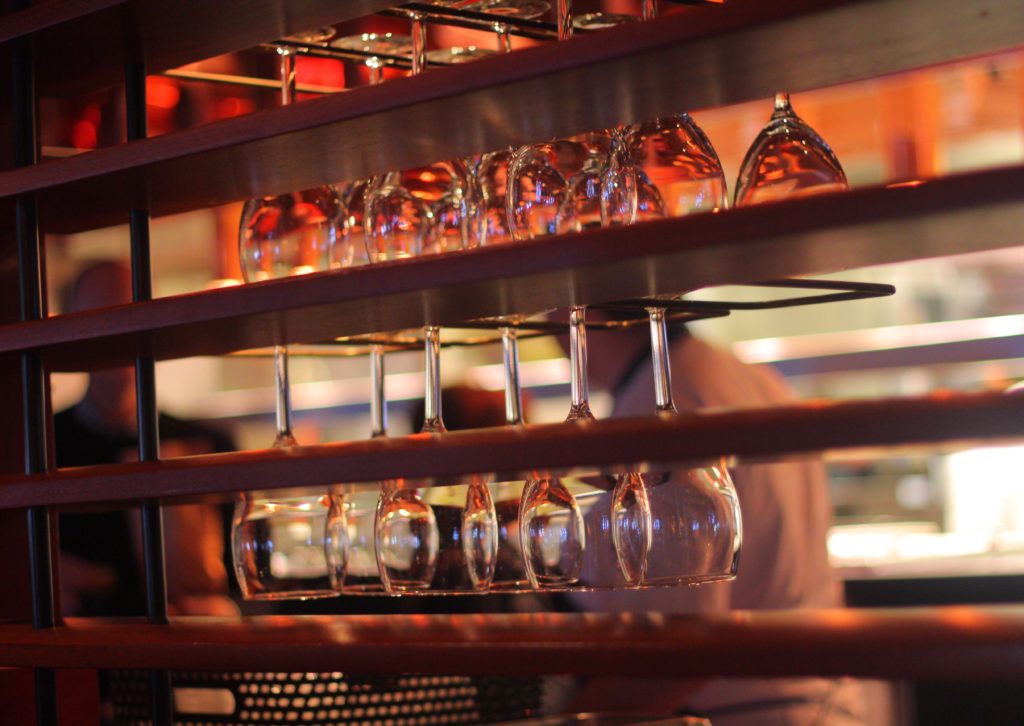
15. What color will be next in the world of wine? Green?
It’s funny that you bring up green wine because there’s a whole other style of green wine that’s being traded out of California, sort of out of back doors. I say “other style” because the green refers to THC…which means it has nothing to do with grapes. It’s supposed to taste like wine, but I’ve never had it. Because that would be illegal.
That’s it – straight from the expert guide, that’s what you need to know about orange wine. Are you in? Will you be serving it when the temperatures drop this fall? Have you tried it? If so, we want to hear your take.
Come and join our community! For access to insider insights and valuable information on the world of luxury, sign up for our Dandelion Chandelier newsletter here. And see luxury in a new light.
 Theo Lieberman has worked in the New York City food and wine business for nearly a decade. Beginning in the cocktail industry, Theo worked with Sasha Petraske at Milk & Honey, going on to become their head bartender and general manager. He then moved on to serve as head bartender at Eleven Madison Park. While working in fine dining, he discovered a deep love of fine wine which he has continued to pursue as The Founder of Thunder Mountain Consulting and sommelier at Compagnie des Vins Surnaturels. He has been named one of America’s “Best New Sommeliers” by Wine & Spirits Magazine as well as Zagat’s “30 under 30.” Theo is an Advanced Sommelier and is currently pursuing the title of Master Sommelier.
Theo Lieberman has worked in the New York City food and wine business for nearly a decade. Beginning in the cocktail industry, Theo worked with Sasha Petraske at Milk & Honey, going on to become their head bartender and general manager. He then moved on to serve as head bartender at Eleven Madison Park. While working in fine dining, he discovered a deep love of fine wine which he has continued to pursue as The Founder of Thunder Mountain Consulting and sommelier at Compagnie des Vins Surnaturels. He has been named one of America’s “Best New Sommeliers” by Wine & Spirits Magazine as well as Zagat’s “30 under 30.” Theo is an Advanced Sommelier and is currently pursuing the title of Master Sommelier.





